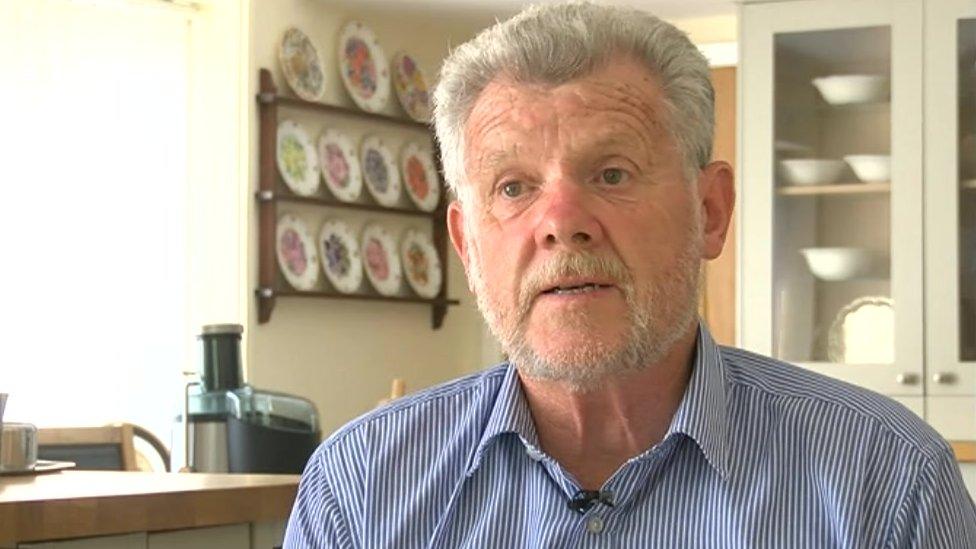Elderly 'under siege' from fake HMRC and police scammers
- Published
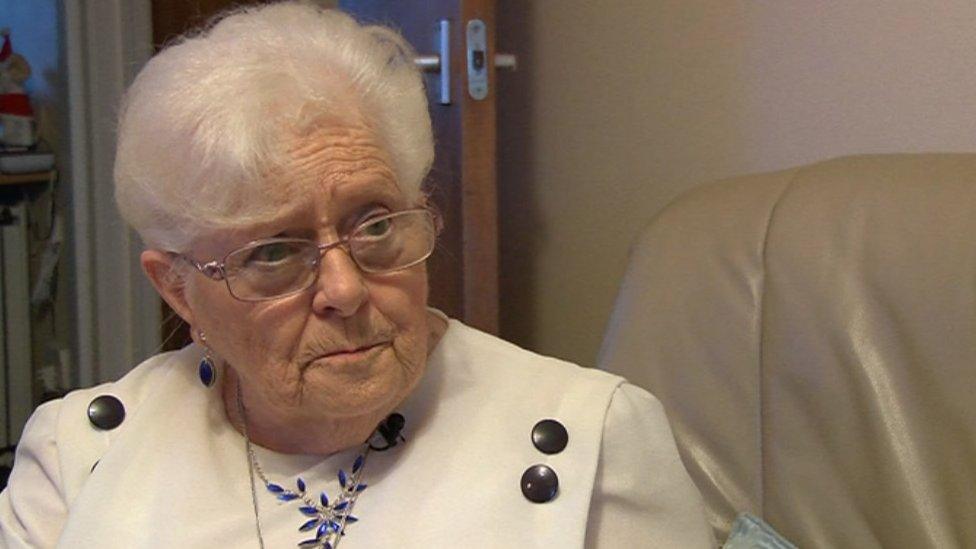
Margaret Smeed ordered £20 worth of chocolates to give as Christmas presents but is still getting deliveries and invoices for hundreds of pounds
Elderly people are "under siege" from sophisticated and persistent scammers, a charity claims.
These include mail order, online and phone frauds, with some claiming to be HMRC or the police and threatening arrest, Age Cymru said.
It estimates up to 150,000 older people across Wales are conned each year, for an average of £1,200 each.
Margaret Smeed, 84, was bombarded with calls from companies after ordering Christmas gifts through a catalogue.
South Wales Police, which is working with the charity to help identify and support elderly victims of fraud, said the scams were getting increasingly sophisticated.
Insp Cheryl Griffiths said the force had seen an increase in the number of scammers claiming to be from the HMRC, saying the victim has not paid their tax bill.
"They'll tell them if the bill isn't paid then a warrant will be issued for their arrest," she said.
The scammers ask for the payment - often in the form of iTunes vouchers - and tell the victims to buy them at a supermarket, before calling them back and asking for the codes.
"The threat of the warrant of arrest is enough to make them do it," she said, adding the force was now working with stores to help them identify potential victims.
"An older person at a supermarket purchasing several hundred pounds of iTunes vouchers is unusual, fortunately many supermarkets are identifying this," she said.

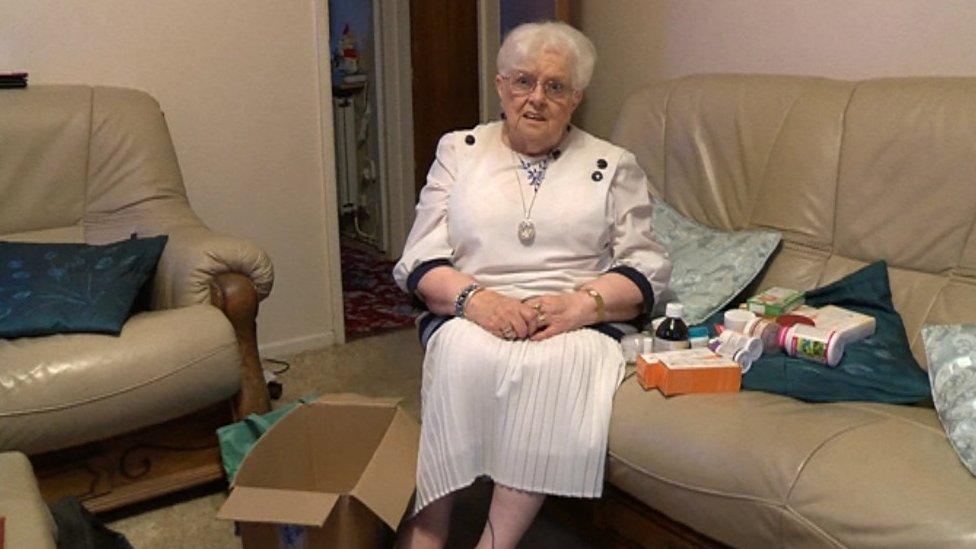
Mrs Smeed is being sent boxes, mostly containing supplements, on an almost weekly basis
When Margaret Smeed received a catalogue selling Belgian chocolates, she placed a £20 order for a few boxes to give as Christmas gifts.
But when the package arrived at her Abergavenny home, it was full of things she had not ordered - and a £108 bill.
"There was an umbrella in there, two candlesticks, two Santa sleighs, two Easter bunnies, one of which was squashed to pieces with chocolate everywhere, and couple of bags of Easter eggs, loads of cake - and biscuits," she said.
Mrs Smeed, 84, sent most of it back. But boxes are still arriving from different firms, despite her never ordering or paying for the products.
"Occasionally I get an invoice but I just ignore it," she said, adding her postman regularly takes the parcels back to the sorting office.
"You get catalogues initially, you look through it and you put it in recycling and that's it. But the catalogue is followed up with calls, usually at lunchtime."
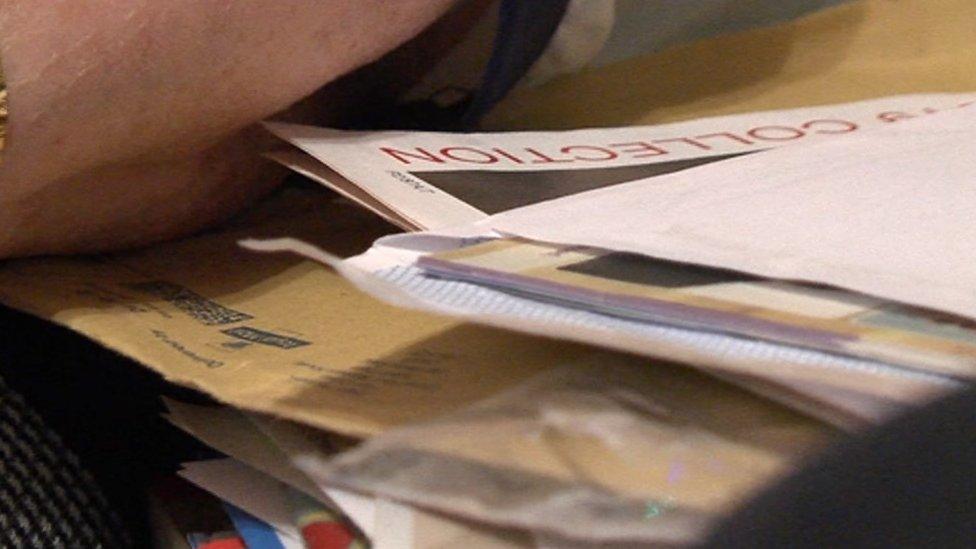
Mrs Smeed gets sent letters, adverts and catalogues trying to get her to pay for items she does not want
At one time she was getting regular calls from a mattress firm in America, which she described as quite nasty.
"They rang at least once a week. A woman would ring up and I'd get rid of her, not two minutes later a fella would call. Same company, same spiel."

Michael Phillips, from Age Cymru, said: "A lot of people will get scammed by mail order, others by the telephone, some by the internet for those who are online, others by local rogue traders, and quite often by a combination of these mechanisms.
"It's a sophisticated operation and some older people feel they're under siege."
Insp Griffiths added. "Please look out for your loved ones; if they receive a lot of post, if their phone is often ringing, or if they are secretive about their finances, you can report your suspicions to Action Fraud, or ring police on 101."
An HMRC spokesman said it would never request tax debts are paid in payment vouchers or gift cards.
"If someone calls you claiming to be from HMRC saying you are owed a tax refund and asking for information such as credit card or bank details then it's a scam," he added.
"If you are suspicious at all of contact, forward the email, text or details of the suspicious call you've received claiming to be from HMRC to us at phishing@hmrc.gsi.gov.uk and texts to 60599."
- Published29 June 2018
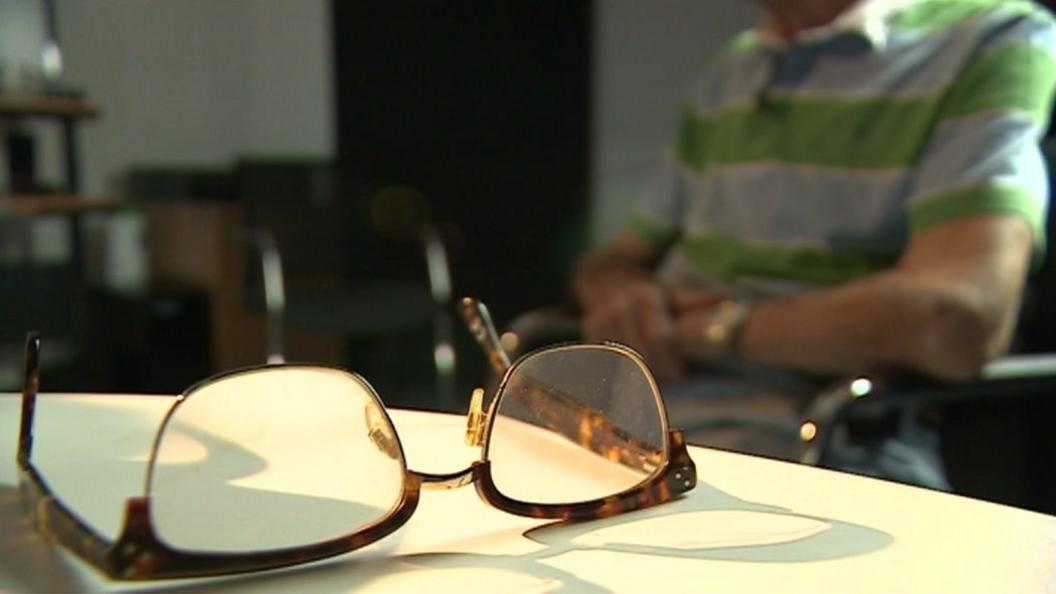
- Published28 June 2018
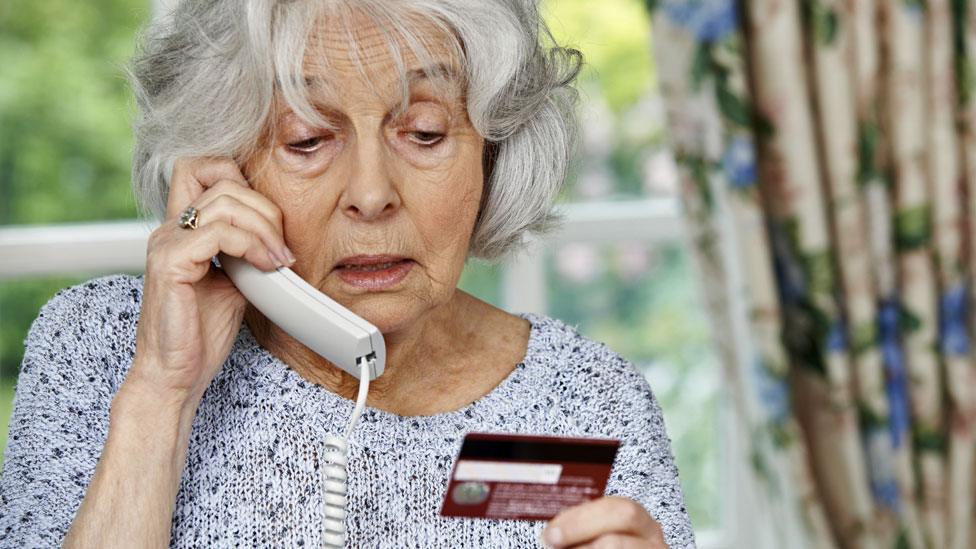
- Published9 July 2018

- Published9 July 2018
